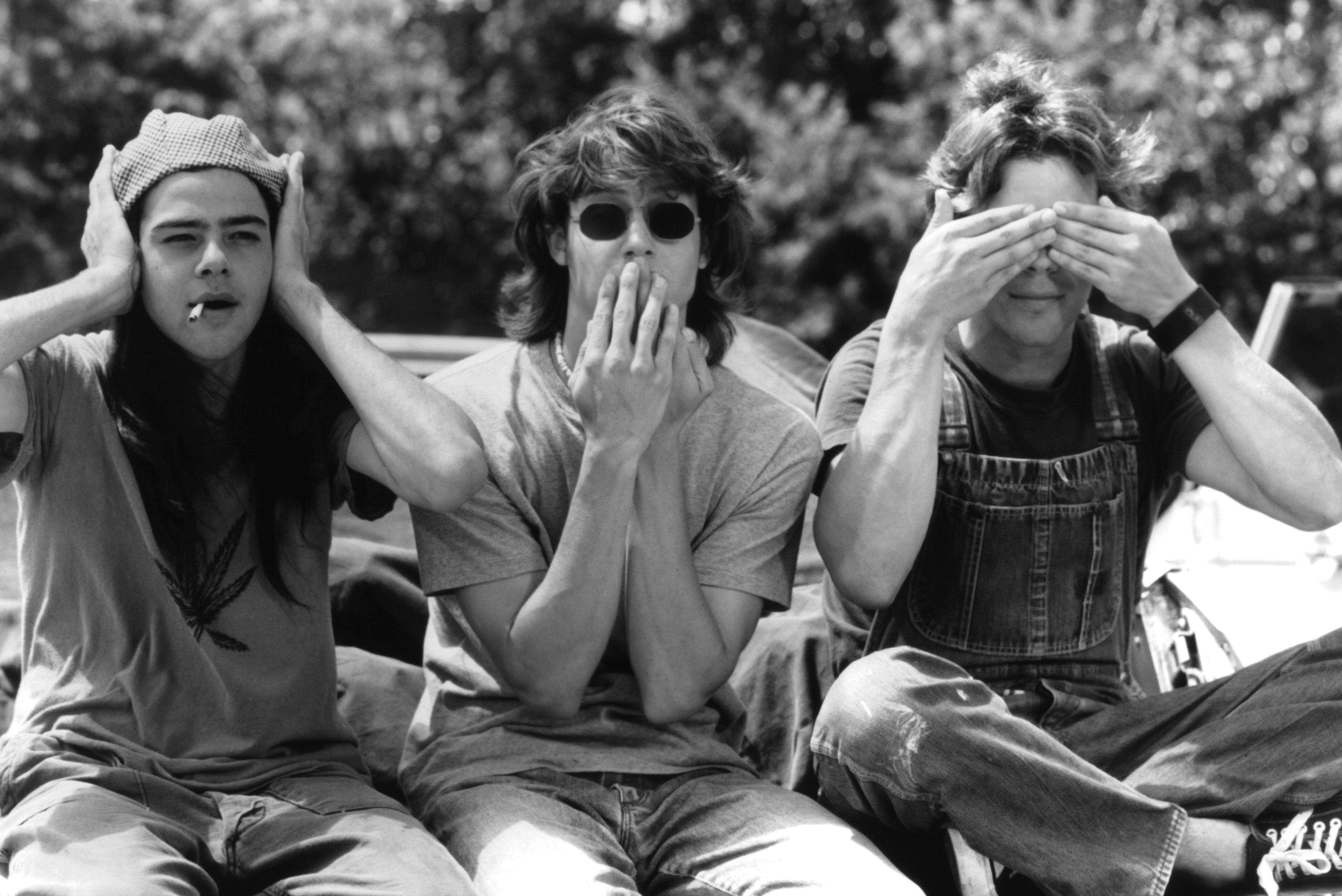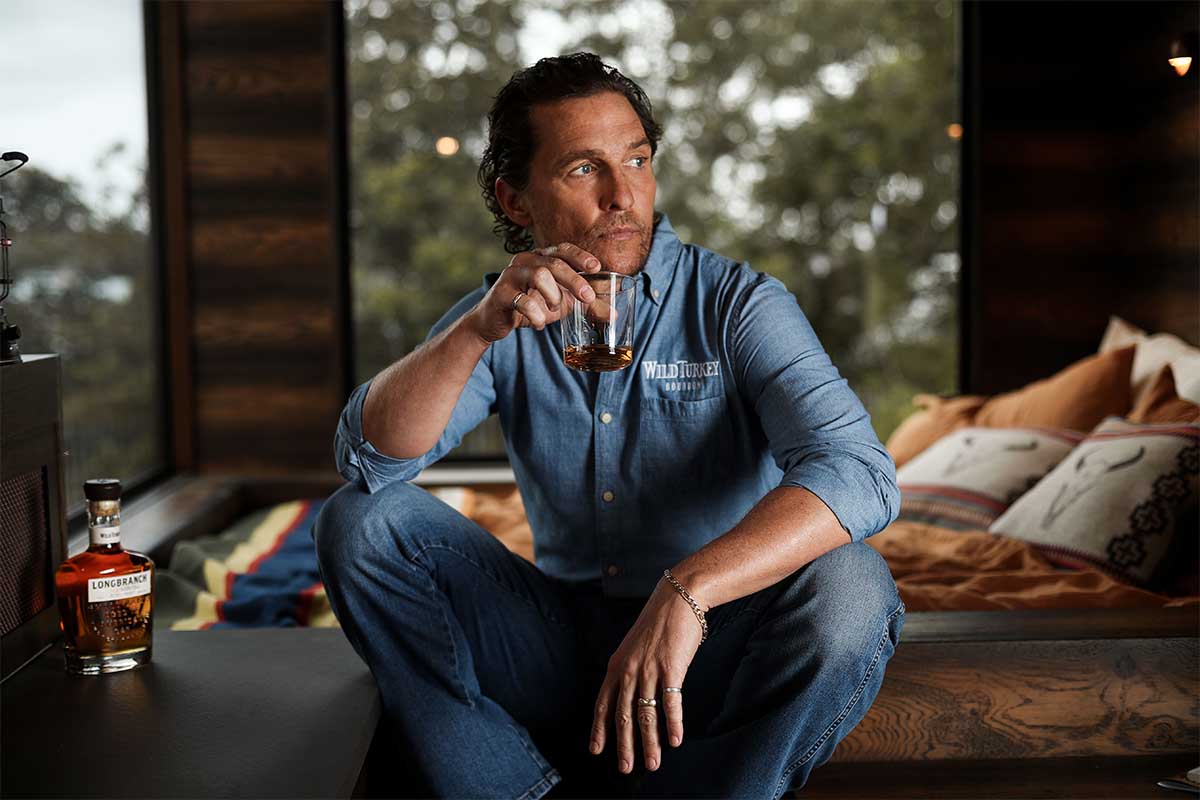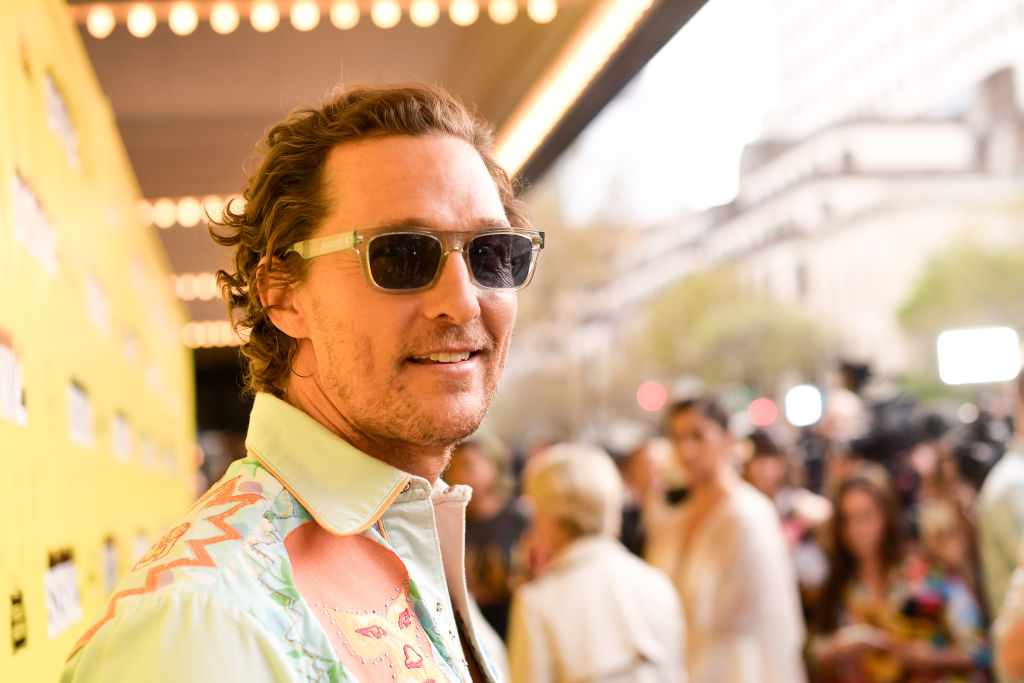When Matthew McConaughey was a teenager, his dad whupped his ass for stealing a pizza. It wasn’t the thievery that did it — it’s that he lied when given a chance to fess up. His dad goaded him to fight back. Instead, he curled up into a corner of their trailer and pissed himself.
“I come from a long line of rule breakers,” McConaughey writes. “I come from a family of disciplinarians where you better follow the rules, until you’re man enough to break em.”
This is the outlaw logic that McConaughey was raised on. It’s the backbone of Greenlights, a memoir published by Crown late last year. The title is a metaphor for all the signals we encounter in life that affirm and enable our progress. McConaughey ties his success to his ability to identify and capitalize on “green lights.” Of course, he’s well aware that this implies a healthy dose of privilege.
“I have a lot of proof that the world is conspiring to make me happy,” he writes.
For anyone who’s seen Owen Wilson in You, Me and Dupree, there’s something Dupree-like in McConaughey’s relentless positivity. At the end of the film, Dupree publishes his own book, 7 Different Kinds of Smoke. But where Dupree is cartoonishly bombastic, McConaughey is arrestingly authentic.
McConaughey wrote Greenlights without a ghostwriter. One of its most surprising aspects, and I mean no disrespect, is how well written it is. His prose is fast, lucid and rhetorically rich. His stories, rhythmically narrated in Texas vernacular, are gripping and evocative. McConaughey charts a chronological course, guiding us from his childhood in Uvalde to his current post as UT Austin’s Minister of Culture. In terms of structure, it’s pretty standard memoir fare. But there’s also flair.
Interspersed throughout the pages are copies of journals, poems and one-line truth bombs that McConaughey has written over the past 35 years. Some add levity, like a satirical fitness treatise titled “The Workout Scale.” Others add weight, like the tender poem “Today I Made Love To My Woman.” All of them add texture. Readers who are devouring the primary narrative may be inclined to skip these supplements. That’s fine, but it’s their loss.
That narrative, to be fair, is tough to look away from. McConaughey is a deft storyteller with a knack for bringing characters to life and delivering well-timed punchlines. The book’s most memorable scenes almost always involve his family. His parents loom large throughout: twice divorced and thrice married (all three times to each other), Jim and Kay McConaughey had a turbulent relationship. But what they lacked in stability they made up for with passion.
One night, Kay chased Jim around the kitchen with a knife while he fought her off with a bottle of ketchup. It ended as abruptly as it started. They dropped their weapons and made love in a puddle of blood and tomato goop. Their youngest, Matthew, witnessed the whole thing. Years later, Jim died while having sex with his wife. It was, he told his sons many times before, exactly how he hoped to go.
Greenlights is full of these tragicomic moments. And while there’s plenty of spice, there’s not a lot of pulp. Yes, there’s the time McConaughey took peyote in a cage with a mountain lion, and the night he resisted arrest while playing his bongos naked and stoned. But there aren’t salacious divulgences or gratuitous indulgences.
That’s not to say McConaughey tries to pass as a puritan.
“Single, healthy, honest, and eligible, I enjoyed the transience of a high-class hotel that promoted mischief,” he writes of his residence at the notorious Chateau Marmont. “I wore the leathers. I rode the Thunderbird. I took a lot of showers in the daylight hours, rarely alone.”
McConaughey’s acting features prominently in the book, but it doesn’t dominate the foreground. He covers his major roles and shares amusing anecdotes. Did you know “alright, alright, alright” was the first line he ever spoke on film? And did you know it was unscripted? Ditto for Wolf of Wall Street’s iconic chest-thumping scene. This pattern illustrates his penchant for stealing scenes — hell, stealing entire films — even when his character has but a few lines.

By treating his movies as waypoints rather than focal points, McConaughey gives his reader a chance to track his spiritual growth. We may already be familiar with how his career has evolved — from shirtless rom-com beefcake to Oscar-winning thespian — but now we see why. McConaughey is deeply introspective and has a profound conviction in his worldview.
In this sense, he’s a lot like Rustin Cohle, his character in True Detective. Although the producers initially wanted him to play the role of Woody Harrelson’s Marty Hart, McConaughey latched onto Cohle the moment he picked up the script.
“I couldn’t wait to turn the page to see what came out of his mouth next,” McConaughey recalls. “He made me sweat in my boots.” He describes Cohle as “an island of a man who lived between the mortal respect of death and the immortal need for deliverance.”
There’s a lot of overlap between the flesh and the fiction. McConaughey and Cohle are both cerebral men who have done yeoman’s work to figure out who they are. They share a tendency to philosophize ad nauseam. (If I have one gripe with Greenlights, it’s the author’s asking me to tackle phrases like: “extraterrestrial transmission of knowledge of the cosmological facts.”) But they are very different, too.
Cohle’s fatalism is anathema to McConaughey’s boundless optimism. While the former’s worldview is rooted in pain, the latter is an “egotistical utilitarian” who believes in the benevolence of mankind and the metaphysical properties of pleasure. This explains the spiritual stock he places in nocturnal emissions — yes, wet dreams.
At several inflection points in his adult life, McConaughey awoke from wet dreams and felt a compulsion to travel. These seminal (semenal?) journeys brought him to South America, where he floated naked in the Amazon, and Africa, where he grappled with a village wrestling champion.
Literally chasing these dreams, he asserts, has led to his brightest “greenlights.” Shortly after another wet dream, he met his wife Camila. They now have three children, and McConaughey feels whole.
“The only thing I ever knew I wanted to be was a father,” he writes. “To me, fatherhood meant a man had made it in life.”
A quick read, Greenlights is enjoyable and refreshing. At a time when our culture is losing sight of fundamental values, McConaughey does his part to restore faith in hope and decency.
This article was featured in the InsideHook newsletter. Sign up now.





















